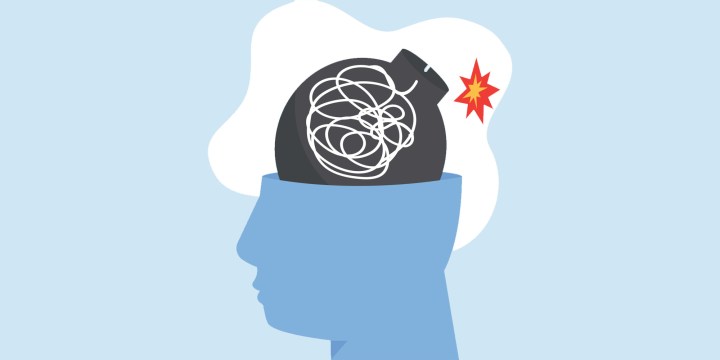CRIME REDUCTION
Quelling youth violence through cognitive behavioural therapy a beacon of hope for Western Cape

Research shows that CBT can be used to stop hardened young men from breaking the law. Inspired by this, the Western Cape government is now using it in schools.
From ex-militants in West Africa to hardened murderers in the ghettos of Chicago, newly published results from large research experiments are showing that a special form of counselling — known as cognitive behavioural therapy (CBT) — reduces criminal activity among some of the most violent young men.
CBT is an approach in which a facilitator helps people to become aware of negative (and often inaccurate) thoughts both about themselves and others. Instead of analysing the unconscious causes of these beliefs and attitudes, CBT helps people to adjust their thinking and take actionable steps to manage their challenges.
While it’s been shown to be an effective way to assist SA adolescents with depression and post-traumatic stress disorder, international evidence is increasingly showing that CBT can also turn young men away from violence by getting them to act less impulsively.
Motivated by these findings, the Western Cape government has been rolling out its own CBT-inspired project across schools in Cape Town and the Winelands to tackle violence among learners.
The programme, called Shukuma: Moving Mindsets, is currently being offered across 33 high schools (in high- and low-crime areas).
It’s based on a successful initiative in the US, which used a CBT-driven curriculum to halve arrests for violent crime among school students in dangerous areas.
But how do we know that CBT cuts crime, why is it so effective, and is the SA programme working?
Records show CBT is slashing youth violence
The story starts in Chicago’s ghettos, where a team of academics took 2,740 high school boys (Grades 7 to 10) and randomly split them into two groups: half were sent to a mentorship programme called Becoming a Man (BAM), while the others got nothing.
Students who were assigned to BAM were led by a trained mentor through a CBT-inspired curriculum each week for one year.
Sessions were held in groups of 15 and exercises varied from structured check-ins to training in anger management techniques and role-playing games designed to help students manage real-life problems.
At the beginning of the year, a little over a third of the students had been arrested, both in the group sent to BAM and among those who didn’t get anything. But by the end of the programme, things had changed dramatically.
Police records showed that arrests for violent crime had dropped by 45% among those who had taken part in the programme compared to those who didn’t get anything. And when the experiment was repeated with new students four years later, researchers got roughly the same results.
Why was it so effective? Largely because it stopped kids from impulsively using violence whenever conflict arose.
Jens Ludwig, an economist who co-authored the research, explains, “A lot of the shootings [in Chicago] don’t stem from robberies or gang wars over drug-selling turf, where money is an obvious driver. Instead, it seems a lot of shootings are basically just arguments which escalate and end in tragedy because someone had a gun.”
The BAM curriculum addresses this problem head-on, argues Ludwig: “[It’s designed] to get people to recognise when they’re in high-stakes situations, and be a little less automatic and a bit more deliberate in their decision-making.”
A new way to cut crime in the Western Cape?
Inspired by these successes, the Western Cape government’s Department of the Premier (DotP) began talks with various organisations in 2019 about developing its own CBT-inspired violence prevention programme for high-school learners.
In 2021, the province commissioned research into violence at nine schools in some of Cape Town’s underprivileged areas to determine whether such a project would be beneficial. Interviews and surveys revealed that, much like in Chicago, violence in Cape Town’s schools is often “an immediate, automatic response to anger”.
In response to the research, the DotP and the provincial departments of education, and cultural affairs and sport worked with the organisation J-PAL Africa to develop Shukuma: Moving Mindsets, a CBT-based project designed to help school students slow down their instinctive reactions in response to conflict.
A test phase for the Shukuma programme was launched in 2021 at four schools in the Cape metro, while a second pilot phase reached 4,000 learners across 45 schools in 2022.
Homicides and shootings cut by 65%
Whether Shukuma is working remains an open question. But if the rest of the world is anything to go by, CBT-based programmes are an increasingly promising route to cutting crime. Earlier this year two research experiments found that CBT can even slash violence among hardened criminals.
In one case, researchers took a large group of high-risk men in Chicago. It gave half of them group CBT sessions and subsidised work opportunities — the others got ordinary assistance from outreach workers.
About a year and a half later, arrests for gun shootings and homicides had dropped 65% among those who were given CBT and jobs compared with those who got ordinary social assistance.
In a second experiment, researchers went to war-torn Liberia in West Africa, where they found that eight weeks of intensive group CBT was effective at cutting crime among marginalised men.
Astonishingly, these effects persisted 10 years after the therapy was administered.
If there was ever a good reason to think that governments could fight crime without more police and prisons, academics are increasingly showing that this may be it. DM
Jesse Copelyn is a freelance journalist.
This story first appeared in our weekly Daily Maverick 168 newspaper, which is available countrywide for R29.





















Hope this is implemented all over,if done correctly it will have a huge impact